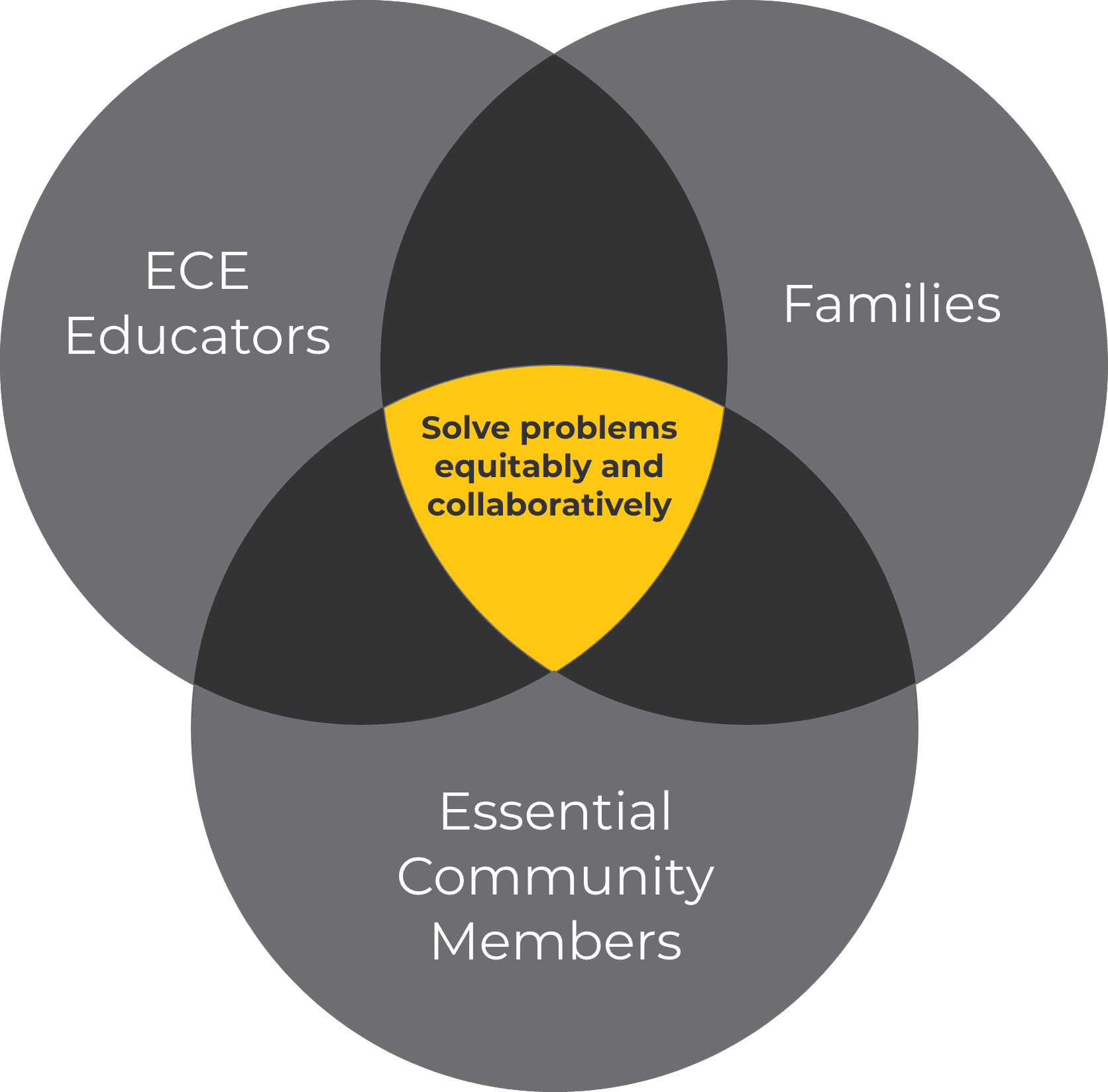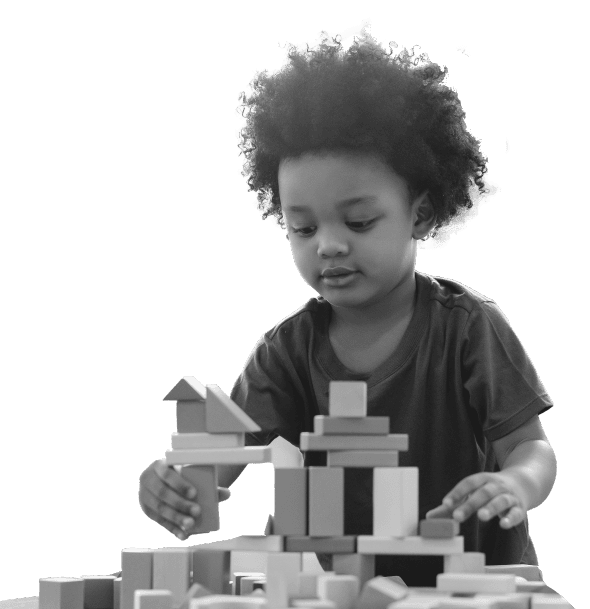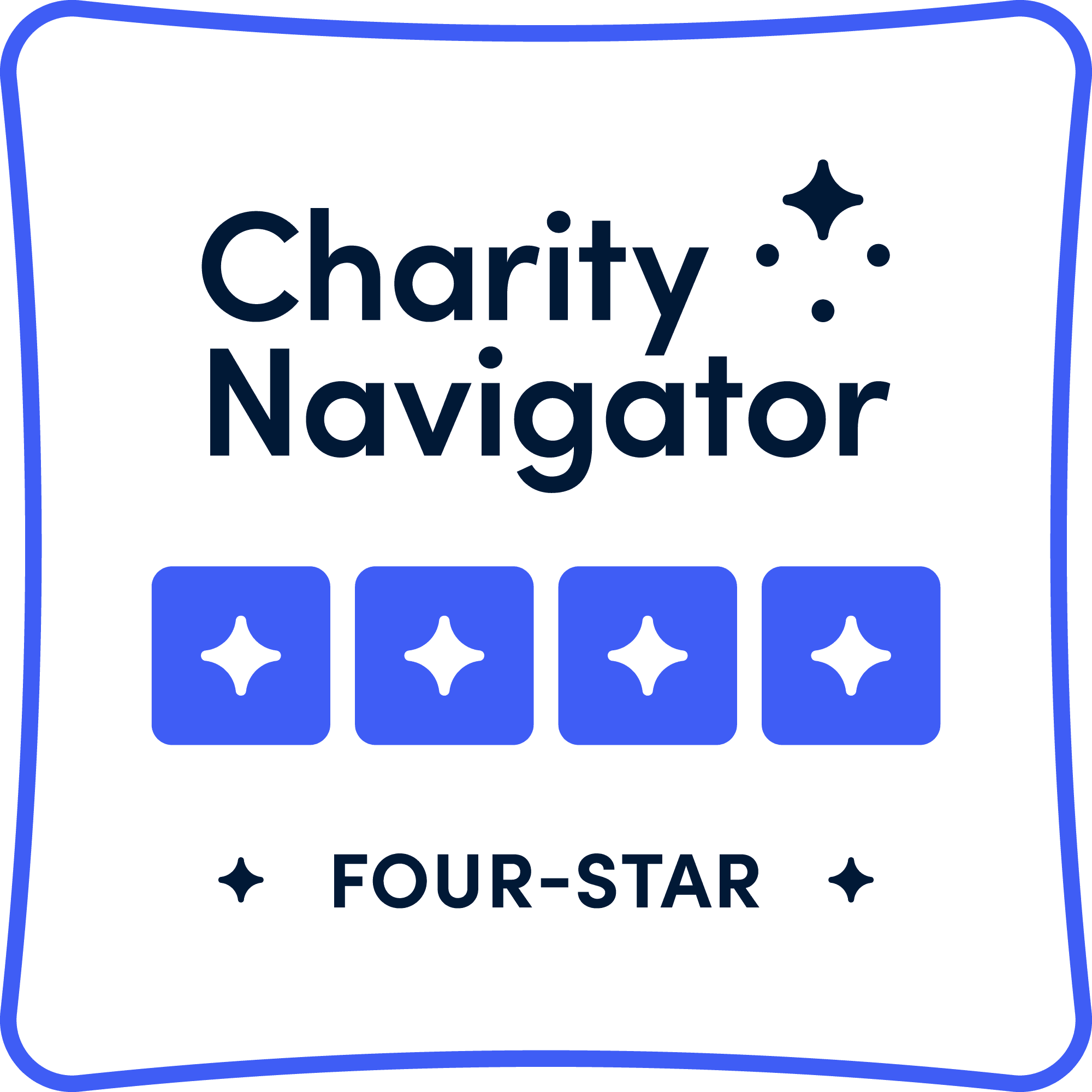ECE Educators
The current structure fails to respect the humanity and wisdom of educators in the decision-making process— which manifests a feeling of being disregarded.
Families
The voices of families are often missing in the decision making around children’s care and education.
Essential Community
The systems surrounding children often fail to seek out and listen to the wisdom and needs of the critical adults in their lives.
The Challenge
Inequitable Learning Systems
Children’s optimal development relies on positive relationships with adults. Too often, early learning systems are siloed, rife with inequity and mistrust among adults, which undermines a healthy growth environment for children.
Early Childhood Education (ECE) educators are all the dedicated professionals who play a key role in guiding the development of young children during their formative years, from birth to age five.

The Solution
Holistic Early Learning
All children deserve to grow and learn in thriving and collaborative communities of empowered and nurturing adults. Leading for Children strengthens communities by advancing evidence-based approaches where adults collaborate equitably towards positive outcomes for children.
Advancing agency for every adult who cares for our children is the solution to the challenge we face. Agency puts the power in the hands of those doing the most important job in the world—caring for our children. It is critical to addressing burnout, sexism, and racism.

Mutual Learning Method™
The Mutual Learning Method™ is an approach to learning with and from one another, grounded in respect for each person’s experiences and perspectives. Informed by the Humanity First Model, it centers dignity, curiosity, and relationship. Through reciprocal dialogue, every voice is heard and valued, creating shared understanding, trust, and collective growth.
Humanity First Tools
Make five commitments and follow 11 simple rules.
The Five Commitments of Optimistic Leaders for Children
At LFC we believe that leadership is how you see yourself, your willingness to recognize and own the impact you have on others, and your commitment to take action to effect positive change. Leadership is not defined by a role or title. The Five Commitments of Optimistic Leaders encourages leadership development through reflective practice. Adults recognize their potential for individual impact, and they foster equity and respect in their everyday interactions.
The Five Commitments of Optimistic Leaders are:
-
- Think impact to make informed decision.
- Cultivate Self-Awareness to guide thought, emotion, and behavior.
- Nurture Relationships to support learning and collaboration.
- Refine Communication for mutual clarity and understanding.
- Activate Curiosity to find connection and continue learning.
11 Simple Rules to Create Thriving Communities for Children
11 Simple Rules to Create Thriving Communities for Children creates common ground for adults to implement key elements of program quality. Applicable across all early learning settings, the 11 Simple Rules give every adult a shared framework for supporting children to thrive. At LFC we believe that how the adults in children’s lives see themselves, treat each other, and work together is vital to realizing our dream of quality and equity for every child.
The 11 simple rules offer a path to shared understanding about how to be together in communities. This serves as the basis for conversation among the adults in the child’s ecosystem, creating a shared framework for supporting children to thrive.
The 11 simple rules are organized into three important categories:
- Relationships and interactions are honest, open, trusting, and two-way.
- Emotional and physical environments are safe, calm, organized, and respectful.
- Learning experiences are meaningful, exploratory, and actionable.
Programs
LFC offers programs grounded in mutual learning and partnership. We work with adults whose priority is the care and education of young children, supporting reflection, skill-building, and relationship-centered practices that strengthen early learning ecosystems over time.
Introductory Workshops:
Ranging from 90 minutes to six hours in duration, these immersive workshops build awareness about the Humanity First Model.
Book Study Groups:
LFC offers remote book study groups for deeper exploration into the Mutual Learning Method. Book Study Groups focus on The Five Commitments of Optimistic Leaders or 11 Simple Rules for Thriving Communities. Study Group members refine and acquire new attitudes, skills, and behaviors related to self-empowerment, equitable partnerships, and a shared understanding of thriving communities.
Learning Networks:
LFC’s Learning Networks convene adults who play a variety of roles in the early learning landscape to build collective wisdom and tackle their community’s toughest challenges. Learning Network members engage in mutual learning conversations to strengthen leadership skills and cultivate self-empowerment. LFC’s tools and resources support the integration of the Humanity First Model within communities. Learning Network members forge meaningful partnerships within and beyond the network. Together, we use the network’s collective voice to advocate for children.
Strategic Partnerships:
LFC’s Strategic Partnership program embodies the enduring essence of LFC’S principles, guiding communities toward a future rich with positive change and impactful results. This opportunity invites partners to join an incredible journey with us, one that promises to leave a lasting legacy in communities and across generations.
Facilitator Fellows:
In LFC’s Facilitator Fellows program, members engage with an LFC Facilitator to deepen familiarity with the facilitation approach, method, and strategies. This program results in our partners having individuals who can carry the work forward after the Mutual Learning Experiences conclude.
Leadership Coaching:
At LFC, coaching is a respectful, equity-centered partnership grounded in mutual learning. It’s a collaborative one-on-one or small group process designed to help members unlock their potential, navigate challenges, and grow, both personally and professionally.


